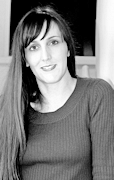For Emily Dietle, the processes of letting go of religious belief and embracing feminism were mutually interdependent.
 The blogger and activist grew up in what she labels “a sexually repressed religious family in sexually oppressive, religious Texas.” Dietle, who has a much younger brother, essentially grew up as an only child, hopping from church to church and denomination to denomination. By and large, her mother made the decisions as to where the family would worship. But Dietle’s father only rarely came along as mother and daughter tried services in traditions including Methodist, Pentecostal, and Presbyterian.
The blogger and activist grew up in what she labels “a sexually repressed religious family in sexually oppressive, religious Texas.” Dietle, who has a much younger brother, essentially grew up as an only child, hopping from church to church and denomination to denomination. By and large, her mother made the decisions as to where the family would worship. But Dietle’s father only rarely came along as mother and daughter tried services in traditions including Methodist, Pentecostal, and Presbyterian.
“My dad’s absence from church troubled me greatly as a very little girl,” Dietle says. “I wanted to make sure he was ‘going to Heaven,’ too.”
As she grew up, the first cracks in the edifice of belief appeared and began to widen. Nothing Dietle had seen in Christianity, for example, was compatible with her emerging bisexuality. Having experienced attraction along many points in the gender spectrum even before she could put words to the feeling created only questions and doubts when put up against unyielding faith.
Ironically, it was a pastor who encouraged Dietle to explore her doubts. She still has deep respect for the man who encouraged a questing spirit, even if it led away from religion.
It is that questing approach that she hopes to inspire in others, whether they are believers, questioners, or nonbelievers with accommodationist leanings.
“For someone that insists that religion and equality are bedfellows, I would offer ample evidence to the contrary, and request that they do a little digging for themselves,” she says, “the goal being that if they read more material, they will uncover more than I could have convinced them of in argument.”
Dietle herself has become a purveyor of information on secular and women’s causes. Through her blog, EmilyHasBooks, and multimedia guest spots alongside numerous movers and shakers in the burgeoning secular movement, she is providing other nonbelievers the same kind of support she found in the online atheist community.
The support of a global network of like minds encouraged her to “come out” publicly, and helped her cope with the sometimes hurtful reactions of believing friends and family members.
Across the spectrum of believers, from kindly pastor to confrontational fundamentalist, Dietle’s approach to explaining her passion for reason and feminist ideals reflects her personal experience:
“[M]y aim isn't to upset the individual, but to place seeds in their thoughts or push them to begin questioning their perspective.”
When asked why she joined Secular Woman (SW), this is what Dietle had to say: “The values and goals that Secular Woman has outlined are strong and positive, and I joined this organization with the hopes that it will fill the needs of non-religious women seeking to make a difference in their communities.
"Though religious leadership has been dominated by males throughout modern history, the internal support and outreach has been done by women. We find that women have a difficult time leaving their religious communities that provide the backbone of their social network and support. When I heard about Secular Woman from Bridget Gaudette [the VP of Outreach], I realized that it would provide much needed support for women transitioning out of religion, and for those already out who are seeking to grow.”
Emily was pivotal during the first few days after SW was mobilized and remains a strong supporter. She used her social media savvy to increase our audience significantly. Secular Woman will forever be indebted to her.
Reed Walton, Outreach Committee Member/Writer
